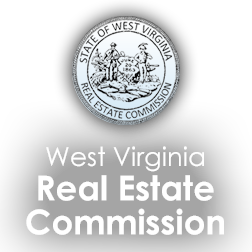
When you're buying or selling a home, there are a number of fees you might be liable for. First and foremost, your fees as a real estate agent. These fees cover the services provided by your real estate agent. These services include the marketing of your home, negotiations with potential buyers, and closing the deal.
Real estate agents have a wealth of knowledge and are highly skilled in their fields. A real estate agent can ease your home-buying experience. Having a realtor on your side makes it much easier to find a good property at a good price, and helps you close on a home faster. But, before you begin negotiating you might want to learn more about the fees paid by the real estate agent.
Real estate agents typically charge between five and six percent of the sales price. You might also see a listing fee. A listing fee is a fee that a listing broker charges for putting the home on the market. It is payable when the deal closes.

The costs of a real property transaction also include attorney fees, title searches, underwriting and recording. Depending on the home's price, these expenses can range from two to seven percent of the sale price. This cost can be negotiated down if the seller is willing to absorb it.
Your mortgage does not include fees for realtors. Your lender will provide you with a reasonable estimate of the closing cost if you are thinking about getting a mortgage. In most cases, the majority of these fees will be covered. You can negotiate a lower fee to get the best possible service.
In some cases, sellers might offer to pay a commission to an agent representing buyers. This can work well for motivated buyers. However, sellers might not agree to sell in certain cases. Often, this is because the sale price of the property is under market value. Some sellers will waive any fees related to repairs prior to closing. Regardless of the reason, the buyer should be able to negotiate a lower price.
Keep in mind the MLS syndication charge. The broker pays a small portion of the sale price. MLS syndication (MLS syndication) is a service that a Realtor uses for advertising the listing on multiple listing sites (MLSs).

Staging and marketing expenses are just two examples of other expenses you might incur in a realty transaction. Agents often ask their clients to contribute towards these costs. Although staging fees can be quite high, they are not reimbursed for their time. Marketing fees can be less ambiguous but can be negotiated down.
You may not be in a position to lower the fee of your realty agent but you can make sure that they're right for you. The best investment you could make is choosing the right realtor. It will not only help you save money, but it will make the whole process easier.
FAQ
How can I tell if my house has value?
If your asking price is too low, it may be because you aren't pricing your home correctly. A home that is priced well below its market value may not attract enough buyers. Our free Home Value Report will provide you with information about current market conditions.
Is it cheaper to rent than to buy?
Renting is typically cheaper than buying your home. It's important to remember that you will need to cover additional costs such as utilities, repairs, maintenance, and insurance. The benefits of buying a house are not only obvious but also numerous. For instance, you will have more control over your living situation.
What amount should I save to buy a house?
It all depends on how many years you plan to remain there. Start saving now if your goal is to remain there for at least five more years. If you plan to move in two years, you don't need to worry as much.
How many times do I have to refinance my loan?
This will depend on whether you are refinancing through another lender or a mortgage broker. In either case, you can usually refinance once every five years.
What are the benefits associated with a fixed mortgage rate?
Fixed-rate mortgages allow you to lock in the interest rate throughout the loan's term. You won't need to worry about rising interest rates. Fixed-rate loans have lower monthly payments, because they are locked in for a specific term.
Statistics
- When it came to buying a home in 2015, experts predicted that mortgage rates would surpass five percent, yet interest rates remained below four percent. (fortunebuilders.com)
- The FHA sets its desirable debt-to-income ratio at 43%. (fortunebuilders.com)
- 10 years ago, homeownership was nearly 70%. (fortunebuilders.com)
- This seems to be a more popular trend as the U.S. Census Bureau reports the homeownership rate was around 65% last year. (fortunebuilders.com)
- Some experts hypothesize that rates will hit five percent by the second half of 2018, but there has been no official confirmation one way or the other. (fortunebuilders.com)
External Links
How To
How to be a real-estate broker
You must first take an introductory course to become a licensed real estate agent.
The next step is to pass a qualifying examination that tests your knowledge. This requires studying for at minimum 2 hours per night over a 3 month period.
Once you have passed the initial exam, you will be ready for the final. You must score at least 80% in order to qualify as a real estate agent.
All these exams must be passed before you can become a licensed real estate agent.